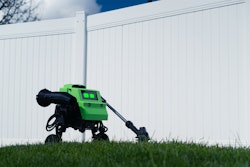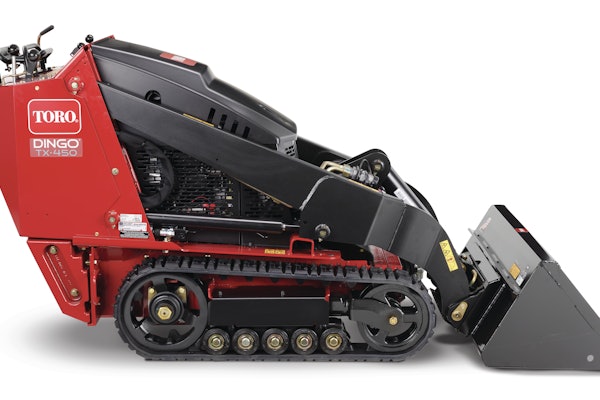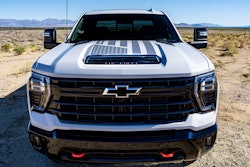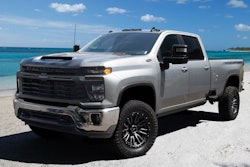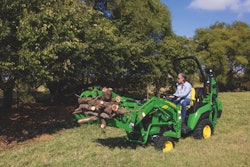
With spring in full swing, the busy landscaping season has begun, and between all your scheduled jobs and new customers, expense management tools may not exactly be top of mind.
In order to grow your landscaping empire, you may want to consider integrating professional software platforms to manage your fleet and employ the use of telematics so that you have instant visibility into your field workforce’s activity to make necessary updates and changes to keep crews on the road.
But there’s also a new generation of software, including smart fleet cards, that has benefits that can transform your overall business operations. By using these tools, you can get better insights into your fleet and fuel operations, enabling you to spot spending trends and prevent unnecessary losses quickly and easily, so you can get back to growing your business.
Level up your fleet management
A smart fleet card can enhance your fleet and expense management by stemming losses and finding optimizations.
For decades, businesses that make their money by ensuring their crews are able to get to customer sites have been using a fuel card for added efficiency and security. This allowed on-the-road crews to replenish the fuel in their vehicles and equipment necessary to do their jobs, but it was limited in its capabilities and could be fraudulently used to make unauthorized purchases using a business’s credit or funds.
If your older fuel cards rely on PIN-based systems - identifying the user with a code punched in at the gas pump - and employees end up sharing PINs with one another, unauthorized uses of the card can slip through the cracks. These cards are also uniquely susceptible to skimming - stealthily copying the magnetic strip of a card when you use it at a terminal, so you can copy the card and fraudulently use it later - given that gas station pumps are notorious skimmer locations, and many older fuel cards lack a chip, which is a basic security mechanism that can prevent skimming losses.
But a modern fleet card can help keep your landscaping fleet remain nimble and secure.
A platform like Coast’s, for example, allows you to integrate your fleet card with your telematics system. Not only will you have a unified view of your fleet data and expenses across your card and telematics platforms, you can also enforce GPS-based controls to block fraudulent fuel transactions. If your crew vehicle is in one location, but the card is being used 20 miles away, you can stop the transaction in real time, automatically, before it happens.
Rather than using a PIN-based card, fleet managers can simply add a team member’s mobile phone and other identifying information, then assign it to their card with the card software. This means that the card is useless unless the employee has checked in via their mobile device.
So if the card is stolen or picked up off the street, it cannot be used or skimmed in a way that will cost you. Modern cards also have chips that ensure that you won’t be held liable if your card is copied and used for fraud.
A smart fleet card also offers features to help you find optimizations within your current processes. With an old-school fuel card, you don’t often get the option to set dynamic spending rules that can be customized based on the role of a particular team member, or by project.
With older fleet cards, users often don’t have real-time visibility into transactions. If a team member requires a legitimate exception for the one-time purchase of a part in a hardware store while in the field or someone filled up at a more expensive gas station closer to their work site, the opportunity to set more efficient policies may go unnoticed or have to be addressed through manual review.
Many older fleet cards don’t even work at all outside of gas stations and a few auto maintenance locations, while a modern fleet card allows you to enable the ability for the card to be used at merchant categories which you choose, based on your business’s policies around who in your crew can spend how much, where, and when.
With a modern card, your management team sets the controls. Its platform works with a widely accepted network like Visa or Mastercard and allows you to easily track purchases by driver, by vehicle, by mower or other equipment, using modern, web- and mobile device-based software.
Using a smart fleet card
Contemporary platforms also allow you to customize the rules that work best for your landscaping company’s needs. By setting dynamic rules based on factors like employee, department, or project, the fleet manager can optimize expenses without constant manual oversight of your spend in the field.
This enables administrators to establish tailored parameters and then simply "set it and forget it," allowing them to focus on other critical operations and growing the business while the platform automatically manages and enforces spending guidelines.
The platform can also provide your fleet administrators with real-time transaction visibility and alerts so any suspicious activity can come to your attention quickly before it gets out of hand and so you can understand your business’s spending patterns.
The software portal enables businesses to pinpoint optimizations swiftly. For instance, if a particular employee consistently requests exceptions to rules in their spend policy, Coast’s platform can make this pattern clear, and it will prompt administrators to address it promptly by implementing new rules tailored to the specific situation if it’s legitimate (like needing to shop at a certain category of store on a regular basis to get jobs done).
By leveraging these insights, businesses can proactively adapt their spending policies, ensuring greater efficiency and compliance to controls across the board.
Manage your spend
These cards can also help you plan. A study by the American Transportation Research Institute shows that, on average, fuel expenses make up more than 24% of a company’s total marginal costs. This is the second largest expense, after only employee wages.
Imagine the time your team can save on budgeting if you have a platform that provides insight into real-time transaction data, intuitive charts and has the ability to collect expenditures and receipts in seconds. These cards can help you manage your spend by:
● Leveraging accurate data: Ensure your fleet tools are set up to capture data through technology and not just user input, to ensure more precise expense tracking.
● Setting spending rules: Implement spending rules tailored to your business requirements, whether it's limiting fuel purchases during off-hours or setting maximum spend thresholds for specific categories.
● Regularly reviewing reports: Take advantage of real-time reporting capabilities to stay informed about fleet spending patterns and identify areas for optimization.
● Educating employees: Empower your team with proper training on utilizing your fleet card and other tools and adhering to spending guidelines to foster accountability and efficiency.
● Making the most of your tech: Use systems like telematics and available integrations to monitor transactions closely, and promptly address any discrepancies or suspicious activities to maintain compliant spending.
By leveraging accurate data and setting tailored spending boundaries, businesses can optimize their operations, reduce costs, and ultimately enhance their bottom line. The truth is that no one gets up in the morning wanting to worry about their fleet, or their fuel spending. What business owners want to do is provide good customer service and build their businesses. Choosing a contemporary fleet expense management system helps them to do just that.
Making sure your employees only spend on what is necessary to do their jobs, setting dedicated spending limits and programming cards to enforce the right rules, and allow authorized spending from a convenient dashboard means more ease for your field crew and more peace of mind for you and your back office team.
By keeping these tips in mind, your landscaping business can help automate expense management, reduce costs, and better serve customers in the process – both during the busy season and beyond.
Daniel Simon is the CEO and founder of Coast, a modern fleet card and expense management platform that helps companies govern their fuel and fleet spending. The co-founder, Chief Technology Officer and Chief Operations Officer of Bread, a technology-driven digital payments company that was acquired in 2020 by Alliance Data Systems, Simon is an experienced venture-backed entrepreneur who loves the hands-on work of building great products and outstanding teams. He is a graduate of Yale School of Management and received his law degree from the Yale Law School.


